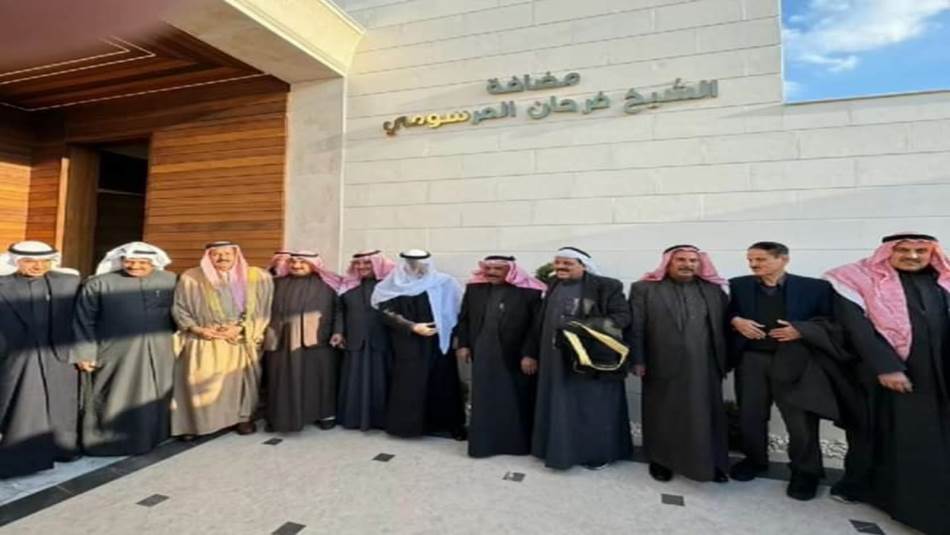On a notable occasion, Sheikh Ibrahim al-Hafel, the esteemed leader of the Al-Aqidat tribe, was seen at the residence of Sheikh Farhan al-Marsoumi of the Al-Marasma tribe in Damascus. This event has fueled speculation regarding the connection between the tribal opposition to the Syrian Democratic Forces (SDF) and the Syrian regime, given Al-Marsoumi’s well-known allegiance to the government and his significant economic connections with the Iranian Revolutionary Guard in northeastern Syria.
A Shift in Tactics
Sheikh al-Hafel has been at the forefront of a tribal campaign, mobilizing members from his and other tribes in Deir-ez-Zor and the eastern regions of the Euphrates against the SDF since late August. Originating from the town of Dhiban, this movement momentarily secured control over the eastern countryside of the governorate before the SDF reclaimed the territory, including Al-Hafel’s base of operations.
Damascus Hosts Significant Diplomatic Engagements Amid Regional Turmoil
The resistance against the SDF has evolved into a form of guerrilla warfare, characterized by surprise attacks on checkpoints and military sites, followed by strategic withdrawals. These actions have inflicted casualties on the SDF, alongside instances of assassinations and kidnappings, including the recent discovery of five SDF personnel in Al-Shafah, a town in Deir Ezzor’s countryside, believed to be carried out by tribal members.
Despite setbacks, Hafel’s presence has been consistent in media, through video footage and images alongside tribal combatants, as well as through audio messages where he either announces new initiatives against the SDF or reaffirms the tribal movement’s dedication to reclaiming Arab tribes’ rights.
Speculations Arise from Damascus’ Appearance
Hafel’s recent appearance in Damascus, specifically at Sheikh al-Marsoumi’s guest house, has raised questions about the tribal movement’s possible affiliations with the Syrian regime. This speculation is particularly poignant as the SDF has been accusing the tribal movement of being regime-aligned since its inception, following the contentious arrest of Deir-ez-Zor Military Council’s commander, Ahmed al-Khubail (Abu Khawla), and his followers in July 2023.
A Leader by Necessity
Political analyst Firas Allawi, hailing from Deir-ez-Zor, views Hafel’s visit to Damascus as unsurprising. Hafel, who maintains no opposition to the regime nor affiliations with the opposition or other political entities, was chosen to lead the tribal movement due to his cooperation with the international coalition overseeing the region. Allawi describes Hafel as a “necessary” and “de facto” leader, accepted by all factions, including the SDF, which is under pressure not to confront him due to his status with the international coalition.
Contrary to accusations linking the tribal movement with the regime, Allawi emphasizes that the movement’s origins lie in opposition to both the regime and the SDF. Hafel’s leadership, rooted in his tribal and coalition ties, does not inherently connect him to the regime. Despite concerns, Allawi suggests that Hafel’s Damascus visit will neither bolster nor diminish the movement’s momentum, though it may impact his influence among his constituents.
Hafel’s leadership stems from his representation of the social front with ties to the coalition and his role as the Aqidat tribe’s sheikh, alongside the benefits his leadership brings to those within and possibly those aligned with the Syrian regime.
This article was translated and edited by The Syrian Observer. The Syrian Observer has not verified the content of this story. Responsibility for the information and views set out in this article lies entirely with the author.


